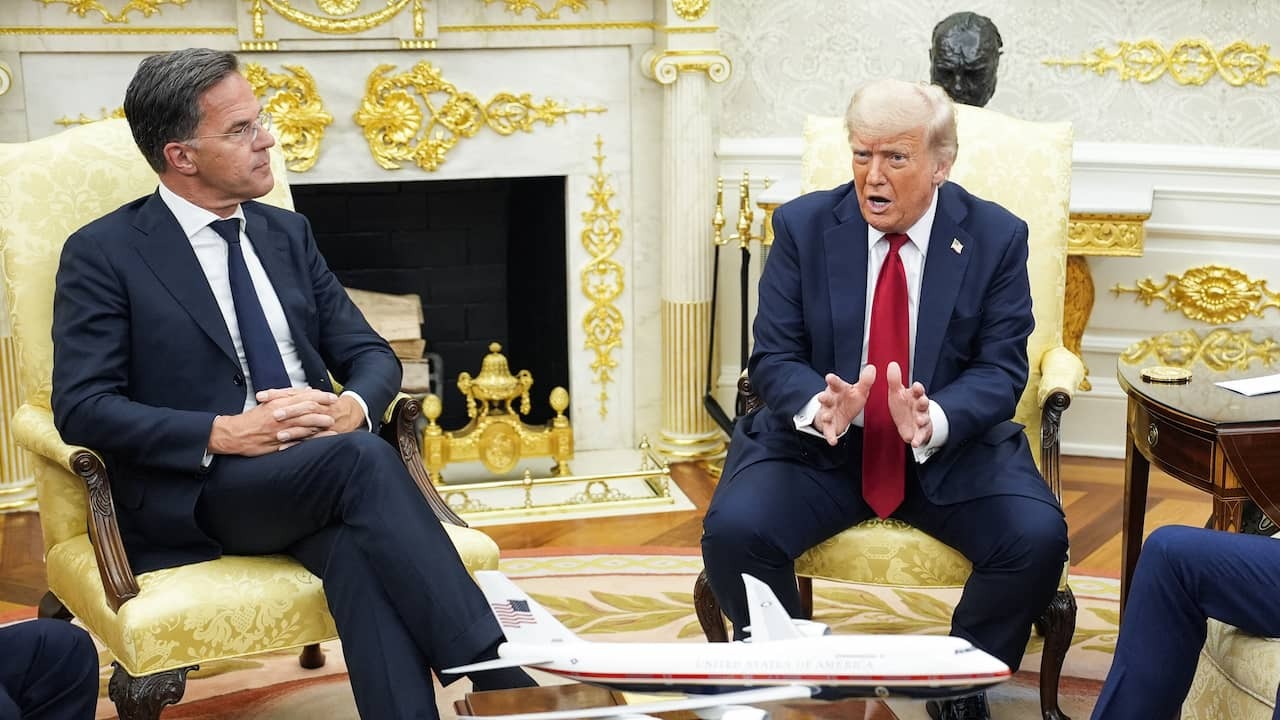
Ukraine has been on a roller coaster since the return of US President Donald Trump, with Kyiv swinging from one extreme to the other, sometimes within days. Is the announcement of arms deliveries just another reversal or a definitive one?
Ukraine will have access to additional air defense, missiles, and ammunition, US President Donald Trump and NATO chief Mark Rutte announced on Monday. These weapons must be paid for by European countries. Russia, on the other hand, may face additional sanctions if it does not want to cooperate on a ceasefire. These relationships have been different before.
For example, a visit by President Volodymyr Zelensky to the White House in February degenerated into a heated argument. Ukraine was allegedly not constructive enough. This was followed by a line through American military support. Sharing military intelligence also came to an end. Not much later, those decisions were reversed.
By promising “billions of dollars” in extra arms deliveries, it seems that the United States’ attitude towards the war in Ukraine has changed again. But that conclusion is premature, says Julia Soldatiuk-Westerveld, researcher at the Clingendael Institute.
It is not exactly clear how Washington will approach this. “Is this a one-time wave of arms deliveries and is the US drawing from existing stocks? Or will Washington consistently deliver more weapons and ammunition to Ukraine from now on?” the researcher wonders.
The latter would be a real turnaround, says Soldatiuk-Westerveld. It would mean that new policies would have to be introduced in Washington to increase domestic production capacity. But according to the researchers, there are no signals for this yet.
At the very least, it seems that Washington is not simply washing its hands of the war. And that has been different before, we wrote earlier this year.
‘Policy is not characterized by strategic considerations’
“The extra arms deliveries now seem mainly a means of pressure for the short term,” says Soldatiuk-Westerveld, who also points to the ultimatum that Trump has set for Russia. The president wants a deal to end the war within fifty days.
Frans Osinga, Professor of War Studies at Leiden University, also thinks that this is a one-off action by Trump. “The president’s policy towards the war in Ukraine is usually not characterized by strategic considerations,” says Osinga.
The professor cites as an example the sudden cessation of arms deliveries by the Pentagon. There were reportedly concerns about American military stocks. A week and much uncertainty later, arms deliveries to Ukraine were resumed.
Osinga also points to the American attack on the Iranian nuclear facilities. “That was also such a one-off action by Trump.”
‘Trump has taken Putin’s insults personally’
Trump himself seems to have made a clear turn, says Soldatiuk-Westerveld. “The president seems convinced that it is not Ukraine that is the problem, but Russia.”
In addition, Trump finally seems to understand that he “cannot simply change the mind” of his Russian counterpart Vladimir Putin, adds Jack Thompson. He is a historian at the University of Amsterdam and specializes in the US.
Trump has threatened Putin with “very heavy levies”. The president says he is “very unhappy” with the Kremlin’s attitude. He states that Putin has fooled a lot of people. “We thought we were close to a deal four times already,” Trump said. “I call him very often and they are very nice conversations. But as soon as I hang up, he immediately starts bombing cities again.”
In this way, according to Osinga, Putin has shown several times that he is not interested in peace. “He has insulted the American president in the eyes of the rest of the world. And Trump has ultimately taken that personally,” says Osinga.
Opinions on ultimatum for Putin divided
Putin’s attitude has also taken the wind out of the sails of Trump’s party members and advisors who were less critical of Russia, Thompson continues. This gives Trump more room to be more critical of Putin.
EU foreign policy chief Kaja Kallas told the press that it was a good thing that Trump was taking a strong stance against Russia. “On the other hand, 50 days is a very long period when we see that innocent civilians are killed every day.”
Timothy Ash finds 50 days “an eternity”. He is affiliated with the Russia and Eurasia department of think tank Chatham House. According to Ash, Trump is not taking a strong stance with his ultimatum. “It is yet another example of a soft hand for Putin.”